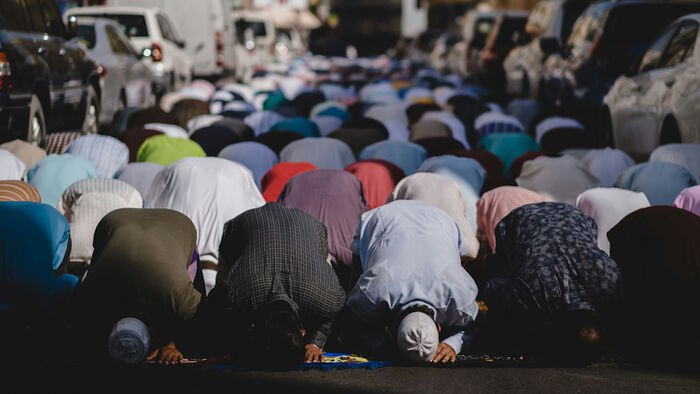A turbulent start
Only six days into the new year, the attention of newscasts worldwide was fixated on the Capitol building in Washington DC. Cathrine Thorleifsson explains that the January 6 attack on the US Capitol was not unexpected, but the outcome of years of radicalization and attacks on democratic norms and institutions. In other words, she argues that the storming of the Capitol is a manifestation of how online propaganda and the radicalization of conspiracy theories can transform into offline violence. Brian Hughes dives into the technological affordances that enable the integration and collaboration between ‘ordinary’ far right voters and extreme right movements, and their impact on the events on Capitol Hill. Now that we are almost a year into the Biden presidency, it is timely to revisit the six urgent questions posed by Kathleen Blee, which she thinks are likely to be key to what will happen in the US going forwards.
In the same month of January, the much smaller country of the Netherlands made headlines when it experienced the most violent riots in 40 years, after a government-imposed curfew was introduced to curb the spread of COVID-19. Iris Beau Segers explains how COVID-19 restrictions have been weaponized by the Dutch radical right, and how the dominant doctrine of Dutch liberalism and ‘normalcy’ have negatively impacted the center-right government. However, COVID-19 does not seem to have made a significant impact on right-wing violence and terrorism in Western Europe more generally, according to Madeleine Thorstensen and Jacob Ravndal. Instead, the 2021 RTV trend report shows a continuation of previous trends, and recent data overall fits into a long-term trend of declining levels of fatal attacks.
A year of remembrance
2021 marked the 20th anniversary of 9/11, and the 10th anniversary of the 22nd of July terror attacks in Norway. Anders Ravik Jupskås and Øyvind Bugge Solheim emphasize that a decade after the attacks, Norwegians’ understanding of the 22 July attacks differs substantially, and can be categorized into three dominant narratives, each with its own ideological and party-political bias. They claim that the potential implications of these differences are large and could cause increasing polarization in Norwegian society today.
Fear of the islamization of Europe was one of the key ideological drivers behind the terrorist’s bombing of the Governmental Quarter in Oslo, and the shootings on the island of Utøya. Anti-Muslim views have become more widespread in Europe over the past 30 years, and according to Katrine Fangen, it is crucial to distinguish between criticisms of certain forms of Islamic practice and the belief that Muslims are taking over Europe. The Norwegian Progress Party’s continued use of conspirational terms such as ‘sneaky Islamization’, illustrate a rhetorical overlap between the Norwegian radical and extreme right, according to Astrid Hauge Rambøl. In light of growing xenophobic and anti-immigration discourses and politics, Jacob Aasland Ravndal emphasizes that the greatest danger to liberal democracies lies in radical right politics that capitalize on these sentiments and dismantle democracy from within.
Elections, polls, and political parties
What kinds of electoral trends can we identify in 2021? The fragmented Dutch far right gained an unprecedented number of 28 seats in its 150-seat parliament during the elections in March. Although the combined success of the far-right Freedom Party (PVV), Forum for Democracy (FvD) and JA21 signals an important political shift, Cas Mudde argues the biggest threat to Dutch liberal democracy still lies in forms of undemocratic liberalism promoted by conservative-led governments that have been in power for a decade.
Moving east, the German elections too showed continuing stable support for Alternative für Deutschland (AfD), given that this time AfD could not benefit from the high salience of immigration and has also suffered from strong and highly visible intra-party divisions, in part due to disagreements over how to respond to the Covid-19 pandemic. Manès Weisskircher highlights the significance of AfD’s relative electoral strength in eastern Germany, and the potential implications of the internal conflict within AfD that has been fueled by these electoral differences. Although the next Polish elections are two years away, Przemyslaw Witkowski argues that the recent Polish Independence March illustrates an increasing closeness between the ruling PiS party, and radical nationalist movements. Witkowski warns that this signals the increasing political power of Polish nationalists, and that we may expect a clearer course to the right in the future.
In other contexts, far-right political parties have had less (electoral) success. Taken together, the emerging groups of the Georgian far right obtained less than 5% in the October 2020 elections to the national Parliament. However, limited electoral success does not mean that the far-right has limited political power, says Tamta Gelashvili, as far-right groups in Georgia might enjoy more public support in street-level actions. In Bulgaria too, ultra-nationalist movements did not manage to gain any seats in the parliamentary elections held in April. Instead, Alexandra Martin Brankova discusses the rise in more banal forms of nationalism, that are gaining popularity among the electorate.
The global nature of the far right
2021 also saw the start of the C-REX Global Perspectives on the Far Right webinar series, co-organized with the International Center for Counter-Terrorism (ICCT) in the Hague. RightNow! has hosted a number of articles by webinar speakers, which highlight far right milieus in geographical areas traditionally under-researched in studies of the far right, namely, beyond Europe and North America. Ariel Goldstein explains how Brazilian president Jair Bolsonaro, the charismatic ‘Lula of the right’ came to power, in the context of a historical third wave of Latin American far right politics. After a series of protest mobilizations, followed by a period of electoral growth, the Australian far right today is increasingly coalescing around more extreme and potentially terroristic neo-Nazi cells, raising significant concerns for Australian security, says Jordan McSwiney. In his discussion of the far right in Japan, Naoto Higuchi argues that the mainstreaming of the far right has significantly shaped the Japanese political landscape over the last few decades, even when membership of far-right organizations has declined. Through the lens of global anti-gender mobilization, Haley McEwen illustrates how Comprehensive Sexual Education (CSE) has become a topic of focus within radical right advocacy in East and Southern Africa, driven by powerful organizations operating from the USA.
Ideological diversity of the far right
The far right is not just global, it is also diverse in its cultural and ideological background. As mentioned before, anti-Islam sentiments and conspiracy theories remain an important driver of far-right mobilization worldwide. Callum Downes reviewed the book Liberal Roots of Far-Right Activism: the anti-Islamic Movement in the 21st Century by Lars Erik Berntzen, which explores the ‘liberal paradox’ of the far right’s combination of liberal and progressive arguments in relation to Islam. In a similar vein, Katrine Fangen argues that far right actors paradoxically weaponize women’s rights and gender equality in pursuit of an anti-Islam political agenda, whilst relying heavily on traditional narratives about gender and family. Anita Nissen and Birte Siim discuss the recent rise of the ‘New Right’ in Denmark, a party that has managed to rapidly gain the support of predominantly male, middle class voters with a platform of anti-immigration and neoliberalism, contrary to the welfare chauvinism of the Danish People’s Party.
Overall, far-right alternative media have increasingly managed to influence the digital public sphere by promoting uncivil and exclusionary ideas, in particular about immigration and Islam. However, Birgitte P. Haanshuus shows how far right alternative news website also spread antisemitic messaging by mimicking and manipulating mainstream news content. Whereas Haanshuus explores recent manifestations of antisemitism, Johannes Due Enstad emphasizes that current antisemitism is clearly characterized by a diversity of intolerance, ranging across ideological and ethno-cultural divides. He argues that an historical perspective is necessary, in order to better understand contemporary forms of antisemitism. In a recently published book, Making Fascism in Sweden and the Netherlands, Nathaniël Kunkeler similarly argues that scholars should pay more attention to how contemporaries understood historical fascism. In particular, Kunkeler emphasizes the importance of the process of myth-making, or mythopoeia, as central to fascist movements in the 1930s. Ideological diversity cannot just be found among the far right, but also among separatist militias in Ukraine, according to Kacper Rekawek. He discusses recent developments in how the Czech courts deal with foreign fighters returning from Ukraine, regardless of their various ideological motivations.
How to research extremism? Measurements and definitions
The global and diverse nature of the far right bring about some challenges in terms of defining and measuring right-wing protest, violence and extremism, as well as designing effective prevention and intervention strategies. The C-REX and Polarization and Extremism and Research Innovation Lab (PERIL) webinar series Researching the Far Right: Methods and Ethics aims to initiate and facilitate a much needed discussion about the methodological, ethical, political, personal, practical and professional issues and challenges that arise when researching far right parties, protest movements, and violent actions.
Bart Schuurman and Sarah Carthy discuss their multiyear research project on the differences between extremists who use terrorist violence and those who do not. Specifically, they discuss how to collect data on individuals who on account of their not having done something are unlikely to be accessible through traditional sources such as academic papers and newspaper articles. Ryan Scrivens, Vivek Venkatesh, Maxime Bérubé, and Tiana Gaudette explore how former extremists believe that violent extremism should be combated, and advocate for a multi-dimensional response, largely consisting of support from parents and families, teachers and educators, law enforcement officials, and other credible formers.
Rune Ellefsen and Jan Jämte address the issue that policies to prevent radicalization and extremism often bundle together militant Islamist extremism (MIE), right-wing extremism (RWE), and in many cases left-wing extremism (LWE). They show that there is a clear discrepancy between the uniform way violent extremism is presented in policy, and how frontline practitioners experience the different forms of extremism at the local level. Fabian Virchow highlights the importance of analyzing far right protests in all their complexity, by measuring how many people attend and how they interact with their environment, in order to reach a more complex understanding of far right protest in their historical context. Tamta Gelashvili summarizes the benefits of Protest Event Analysis (PEA), arguing that scholarship on the far right would benefit from the use of this method to analyze and compare far-right mobilization across cultural contexts and over time.
Academic freedom under pressure
Looking ahead to 2022, our C-REX scholars will continue their research on right-wing extremism, hate crime and political violence. We have recently seen the emergence and growth of far-right threats to academic freedom, as discussed by Léonie de Jonge, Iris Beau Segers and Cathrine Thorleifsson. Emilien Houard-Vial documents how French academia is currently under scrutiny after the Minister of Research and Higher Education validated the theory of a growing “Islamo-leftism” within social science research. He shows how studies on race and gender have become contentious and met in the public debate with accusations of fostering identity politics. In light of these developments, it is especially important to scrutinize far-right threats to liberal democracy in 2022, and to protect scholars from harassment and intimidation from far-right grassroots activists, as well as governmental actors.
Would you like to contribute to RightNow! in 2022, and write an article related to contemporary far right politics, including party politics, subcultural trends, militancy, violence, and terrorism? Please send your article proposal to Iris Beau Segers.
.jpg)

.jpg?alt=listing)


